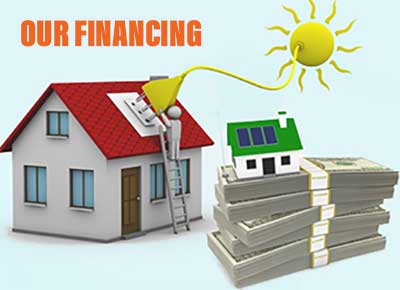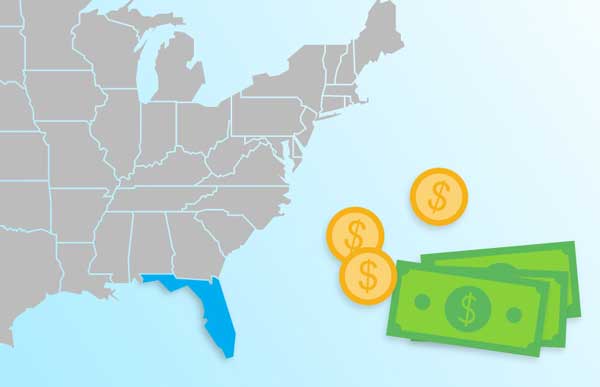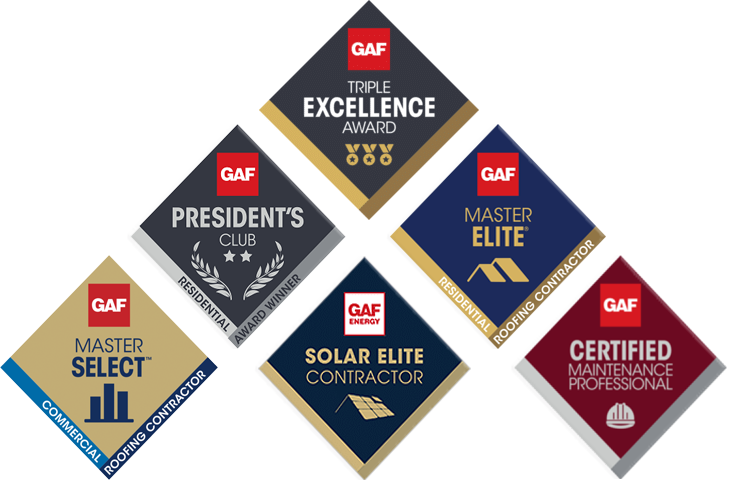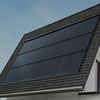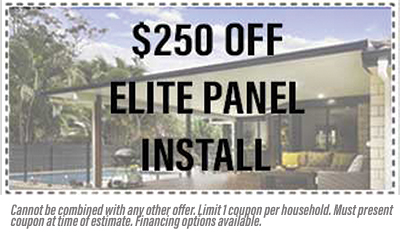10 Point Feasibility Study
- Investigate Your Home's Energy Efficiency
- Assess Your Solar Potential
- Assess Your Options for Using Solar
- Estimate Your Solar Electricity Needs
- Understand Available Financing
- Understand the Federal Investment Tax Credit (ITC)
- Research State & Local Rebates & Incentives
- Obtain Bid & Assessment from Solar Installers
- Work with Your Installer and Utility Company
- Why Choose Sun Coast Roofing & Solar
1. Investigate Your Home's Energy Efficiency
Homeowners should investigate their energy use and consider potential efficiency upgrades. After all, why would you would to install solar to save money when your home is currently leaking air like a sieve through doors and windows. Homeowners should be well aware of their total electricity usage, and consider low-cost and easy-to-implement efficiency measures before choosing solar.
Explore the following resources to reduce your electricity use:
- Home energy audits: A home energy audit can help you understand where your home is losing energy and what steps to take to improve the efficiency of your home.
- Appliances and electronics: Use your appliances and electronics more efficiently, or consider investing in highly efficient products.
- Lighting: Switch to energy efficient lighting, such as LED light bulbs.
- Heating and cooling: If you use electricity to heat and cool your home, your heating and cooling needs will significantly affect the amount of solar energy you need. Weatherizing your home and heating and cooling efficiently will reduce the amount of electricity you need to produce with solar.
2. Assess Your Solar Potential
Before deciding on the best way to use solar electricity at home, assess the potential solar energy that can be produced at your address. While there is an abundance on sun, the amount of power generated by a solar energy system at a particular site depends on how much of the sun's energy reaches it, and the size of the system itself.
The size, shape, and slope of your roof are also important factors to consider. Typically, solar panels perform best on south-facing roofs with a slope between 15 and 40 degrees, though other roofs may be suitable too. You should also consider the age of your roof and how long until it will need replacement.
Consider the following:
- Direction your home faces as well as nearby shade trees. Sun Coast Roofing will also help evaluate shading, but also consider your own or your neighbor's trees that are still growing and could shade your system in the future.
- The age of your roof and how long until it will need to be replaced. If you expect to need a new roof within the next few years, you may want to consider making that improvement before installing solar or choose GAF DecoTech Integrated Solar with your new roof.
- Neighborhood or homeowner association (HOA) restrictions or approval requirements. Some states now have "solar rights provisions" limiting the ability of HOAs to restrict solar installations or limit solar access. These provisions vary state to state, and by municipality; check into your own HOA covenants and state laws.
3. Assess Your Options for Using Solar
Purchasing and installing a system that you fully own and maintain is no longer the only option if you want to go solar. Even if you don't want to purchase a rooftop system, there are many programs that will enable you to still benefit from solar electricity.
Below are some of the options available for using solar energy at home; check with local installers and your utility for programs available in your area.
Purchasing a solar energy system with cash or a loan is the best option when you want to maximize the financial benefits of installing solar panels, take advantage of tax credits, and increase the market value of your home.
Purchasing a solar energy system is a good option if one or more of the following apply to you:
- You want to purchase a solar energy system to install at your home
- You are eligible for state or federal investment tax credits
- You are willing to be responsible for maintenance or repairs (note that most solar energy systems offer warranties, and many installers offer operations and maintenance plans)
- You want to reduce your electricity costs
- You want to sell unused electricity produced by your system back to your utility through a net-metering arrangement
- You want to increase your home’s value
- You have the upfront capital to purchase the system or access to a capital through a lender (note: many banks, utilities, and solar installers offer financing arrangements for solar systems).
If you lease a solar energy system, you are able to use the power it produces, but someone else—a third party—owns the PV system equipment. The consumer then pays to lease the equipment. Solar leases often involve limited upfront investment and fixed monthly payments over a set period of time. Under a leasing arrangement, homeowners typically pay the developer a flat monthly fee for the equipment that is based on the estimated amount of electricity that the system will produce. This amount is often less expensive than their original electricity bill.
Solar leases are a good option if one or more of the following apply to you:
- You want to install solar at your home, but you are unable or do not want to purchase a solar energy system
- You are ineligible for state or federal investment tax credits
- You do not want to be responsible for maintenance or repairs
- You want to reduce your electricity costs
- You want to sell unused electricity produced by your system back to your utility through a net-metering arrangementYou want to sell unused electricity produced by your system back to your utility through a net-metering arrangement.
PPAs allow consumers to host solar energy systems owned by solar companies and purchase back the electricity generated. This is a financial agreement where a developer arranges for the design, permitting, financing, and installation on a consumer's property at little to no upfront cost. The host consumer agrees to purchase the power generated by the system at a set price per kilowatt-hour of electricity produced over the life of the system. The purchase price of solar electricity is often lower than the local utility’s retail rate.
PPAs are a good option if one or more of the following apply to you:
- You want to install solar at your home, but you are unable or do not want to purchase a solar energy system
- You are ineligible for state or federal investment tax credits
- You do not want to be responsible for maintenance or repairs
- You want to reduce your electricity costs
- You want to sell unused electricity produced by your system back to your utility through a net-metering arrangement
- You are interested in procuring solar at a limited up-front cost.
4. Estimate Your Solar Electricity Needs
To help your contractor to provide recommendations for your system’s type and size, gather information about your home and electricity use.
- Review electricity bills to determine annual electricity needs. Your usage will be shown in kilowatt-hours (kWh). Review each month of the year; you may use more electricity in some months than others (e.g., if you run the air conditioner in the summer). Some utilities offer tools that can help with this review.
- Consider any planned changes. If you will be purchasing an electric vehicle or are planning a home addition, your electricity needs may increase. If you are continuing to make significant changes to improve your home's energy efficiency, you may need less electricity than you used in the past.
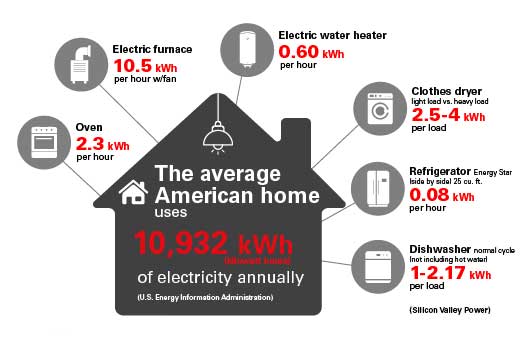
5. Understand Available Financing
be sure to explore all of the available solar financing options. Every situation is different, and what is best for your property depends on a wide range of factors. The Clean Energy States Alliance Guide helps homeowners understand their options, explaining the advantages and disadvantages of each. Also visit the Homeowner’s Guide to Going Solar for more financing options.
6. Understand the Federal Investment Tax Credit (ITC)
Solar energy systems are eligible for a 30% federal tax credit through 2019. The tax credit decreases to 26% in 2020, then to 22% in 2021, and expires December 31, 2021. NOTE: Commercial solar tax credit of 10% continues past 2021. If you opt for a solar lease or power-purchase agreement, be advised that you will not be eligible for this tax benefit, since you will not own the solar energy system.
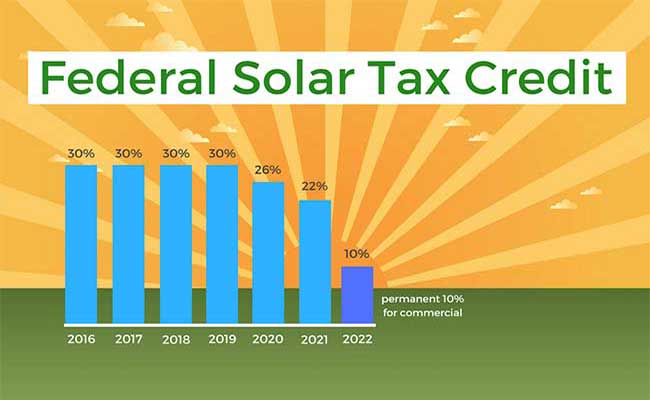
7. Research State & Local Rebates & Incentives
It is also prudent to research your state and local municipalities as well as your local utility company, as many have additional tax incentives and rebates to offer. You can search for additional state, local, or utility incentives on the Database of State Incentives for Renewables and Efficiency (DSIRE) which is the most comprehensive source of information on incentives and policies that support renewable energy in the United States. It is operated by the N.C. Clean Energy Technology Center at N.C. State University and is funded by the U.S. Department of Energy.
8. Obtain Estimate & Assessment from Solar Installers
When researching installers, be sure to find qualified and insured professionals with the proper certification. You can also ask friends and family members who have recently gone solar for references and check online resources for reviews. Before you make any commitments, ask for proof of licensure before working with an installer.
Estimates should clearly state the maximum generating capacity of the system—measured in Watts (W) or kilowatts (kW). Also request an estimate of the amount of energy that the system will produce on an annual or monthly basis (measured in kilowatt-hours). This figure is most useful for comparison with your existing utility bills.
Watts Up!
How to calculate Watt (W) to Kilo-Watt (Kw) Hours (Kwh)
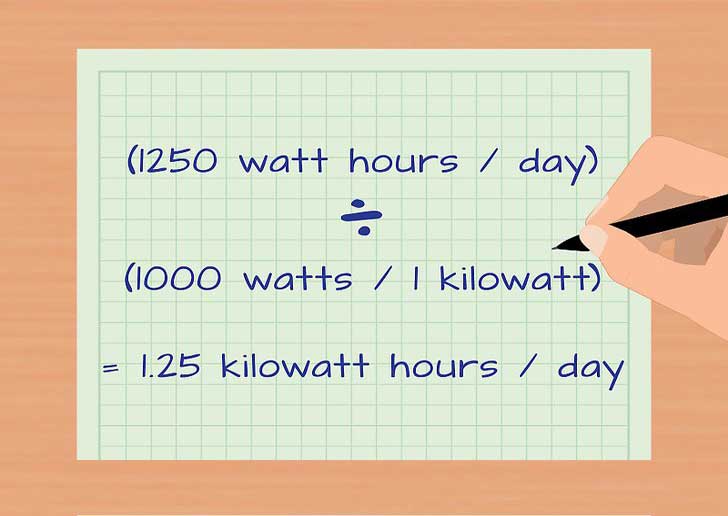
9. Work with Your Installer and Utility Company
How to calculate Watt (W) to Kilo-Watt (Kw) Hours (Kwh)

9. Work with Your Installer and Utility Company
If you decide to install a solar energy system, your installer should be able to complete the necessary permitting and steps required.
Your installer will determine the appropriate size for your system. The size will be based on your electricity needs (determined in step 4) as well as the following:
- The site's solar resource or available sunlight
- The system's orientation and tilt
- The system's efficiency at converting sunlight to electricity
- Other electricity sources, like a utility, a wind turbine, or a fossil fuel generator.
Your installer will also ensure that all equipment is installed correctly to maximize the daily and seasonal solar energy received and produced by your system.
10. Why Choose Sun Coast Roofing & Solar
When you choose Sun Coast Roofing & Solar you are choosing a Company with proven experience, exceptional quality of service, best warranties in the business and a company you can count on.


